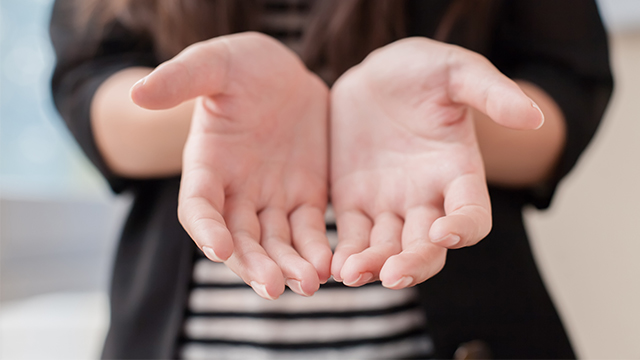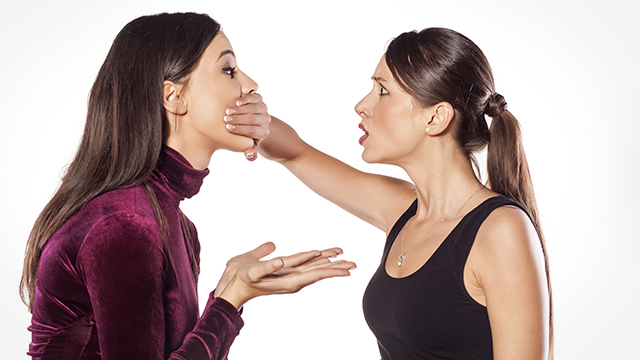10 Signs You Have Stage Fright (And How You Can Combat It)
Written by Ashleigh Gardner
March 8, 2017
Chances are that you’ve experienced stage fright at one time or another in your life. Stage fright is a normal experience for every performer, and we’ve got 10 ways to recognize your fear of the spotlight — and how to push forward in your performance.
1. You’ve got “actor hands”.

We’ve all been there: our hands do the same gesture over and over…and over...and over. Try relaxing your hands and arms, and then using them to do something the character would do. If he’s a banker, try sorting through papers. If she’s a doctor, she might stand with her arms crossed or be reviewing items on a clipboard.
2. You do the Jitters Jig.

Young actors tend to do a sort of dance in place because they’re not quite sure what to do with their bodies during the monologue. This is stage fright, too! Try staying in character and working with the director on how your character would naturally move.
3. You talk too fast or your words are robotic.

If you find yourself doing this, make sure your lines are fully memorized and your objectives are understood. This will allow you to internalize your character’s words so you can speak naturally.
4. You mouth other actors’ lines.

This often happens when you are afraid that you’ll forget your cue lines. Instead, listen to the other actors and imagine you are hearing their words for the first time. Then, concentrate on responding as your character.
5. You jump another actor’s lines or don’t say yours quickly enough.

You “jump the gun” on your lines or wait too long to say them, and then you feel an overwhelming sense of misdirection. It happens! To work on this, ask your director to coach you in your line delivery and timing. Rehearse your scene with your scene partners, too!
6. You don’t project or you slur your words.

Try doing enunciation, diction, and projection exercises before every performance. These fumbles happen because you probably haven’t warmed up and you’re self-conscious about your voice. Don’t be! You’ve got a beautiful instrument. Share it with your audience!
7. Your emotions are over-the-top.

If this happens, you might be experiencing an increase in your body’s adrenaline, causing you to over-emote onstage. Instead, try taking deep breaths offstage and focusing on the character’s personality offstage. If they aren’t overly enthusiastic, then pull back a little and try a more reserved approach.
8. You forget stage directions.

This occurs when an actor is focusing too hard on not forgetting their lines, not throwing up, not tripping, and forgetting that the audience is there. They’re so scared of messing up other things that blocking goes out the window! Try going over your blocking with your director and make sure to make choices that are natural to your character.
9. You take a peek at the audience — repeatedly.

This happens when an actor is self-conscious about their performance and who’s watching them. Instead, try looking at your fellow actors and work to stay focused in the scene you are in.
10. You avoid eye contact with other characters.

If you find that you’re avoiding eye contact with scene partners, it may mean you’re afraid of being vulnerable as your character with them. Instead, forget that you are you and be present as your character. When your character isn’t involved in the scene in a vocal capacity, stay in the scene and act as your character would.
Need some advice? We’ve got you covered.
- 5 Tips for Leading the Double Life: the Performer/Technician Hybrid
- 10 Perks of Being a Cruise Ship Performer
- 5 Reasons Why YOU Should Choose Your Monologue
- What Makes an Actor Website WOW?
- “Is my attitude not getting me roles?” And Other Essential Questions for Actors
- 6 Steps to Memorizing Shakespeare
- 10 Tricks to Staying Healthy All Season Long
- What Does It Take to Break Into Voiceovers?
- 5 Tips for Nailing Your College Music Theatre Audition
- 10 Tips on Owning the Room at Competition
- How to Balance Theatre and Coursework
- The 10 Secrets of Great Understudying
- 10 Items Every Actor Should Carry in Their Rehearsal Bag
- 10 Items Every Dancer Should Keep in Their Rehearsal Bag
